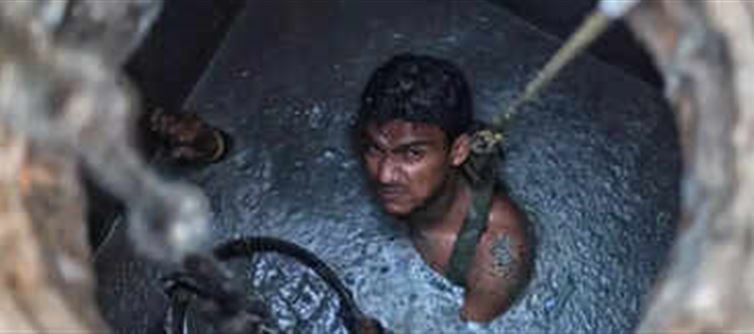
You think india is modern? Think again. In the 21st century, thousands of people are still forced to crawl through human excrement—literally. Yes, manual scavenging isn’t just a horror story from history books. It’s happening right now, in cities and villages, right under our noses. While politicians argue over who gets how much reservation, people are trapped in caste-based jobs that degrade their humanity. This isn’t just unfair—it’s criminal, disgusting, and absolutely avoidable.
1. Manual Scavenging: India’s Shameful Open Secret
Despite repeated bans, people are still forced into the most degrading work imaginable: cleaning human waste with their bare hands. This isn’t a job choice—it’s caste slavery disguised as employment. Every bucket they carry, every drain they clean, is a brutal reminder that dignity and human rights are still being denied in modern India.
2. The Reservation Trap: When Upliftment Becomes Exploitation
Some jobs remain 100% reserved for particular castes. While reservations were intended to help historically oppressed communities, in reality, they often trap people in the same degrading jobs, passing the cycle of humiliation from one generation to the next. Reservation without empowerment is a gilded cage, not freedom.
3. The Law Exists, But Enforcement is Dead
india has strict laws against manual scavenging. Punishments are in place, but enforcement is weak. Employers continue to exploit caste-based labor because the risk of penalties is negligible compared to cheap labor. If laws are just words on paper, they’re useless—real change requires iron-fist enforcement.
4. Caste Discrimination: The Invisible Chains
Manual scavenging isn’t just a dirty job—it’s a caste punishment. Generations are forced into this work not because of ability, but because of birth. Even in 2025, your caste can determine your occupation. That’s not tradition—that’s slavery dressed up as social order.
5. The Human Cost: Lives Lost, Dreams Stolen
Every day, manual scavengers risk infections, diseases, and even death. Children born into these families grow up knowing their life path is predetermined. Dreams of education, dignity, and opportunity die before they even start. This isn’t poverty—it’s systemic oppression.
6. What Needs to Happen: zero Tolerance, Maximum Punishment
• Strict enforcement of bans on manual scavenging.
• Heavy fines and imprisonment for anyone forcing this work.
• Social rehabilitation and guaranteed alternative livelihoods for affected families.
• Public awareness campaigns expose the brutality and human cost of this practice.
• No excuses. No delay. No compromise. Human dignity cannot be negotiated.
7. Why the Reservation Must Be Rethought
• Reservation is a tool, not a punishment. Instead of cementing people into menial jobs, it should:
• Open doors to education, entrepreneurship, and skilled employment.
• Break caste chains, not reinforce them.
• Ensure equality of opportunity, not merely survival.
Conclusion: india Cannot Afford Shame in Silence
The world is watching, and history will judge. Manual scavenging and caste-based oppression are stains on India’s claim to progress. Until strict laws are enforced and society recognizes that dignity is non-negotiable, no amount of economic growth or political rhetoric can hide the fact that oppression is alive—and thriving.




 click and follow Indiaherald WhatsApp channel
click and follow Indiaherald WhatsApp channel